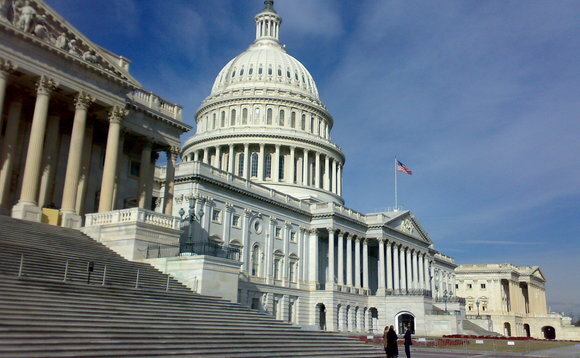
New private equity regulation: industry crisis averted, or postponed?

For many months now, the private equity segment in the US – whose rules and norms still set the terms for industry practice in Asia Pacific as elsewhere – has been beset by creeping insecurity.
Though never cited (unlike hedge funds) as a villain in the GFC, the asset class has looked likely to sustain substantial collateral damage in the wake of the Obama administration's zeal to put Wall Street's more free-wheeling practitioners in a tough new regulatory straitjacket. Thus industry anxieties heightened that private equity's MO worldwide could henceforth be radically altered.
Genesis
In the aftermath of the GFC, reactive legislation such as the Dodd-Frank Wall St. Reform Bill and Consumer Protection Act were introduced and worked their way through bitter lower and upper house battles that pitted reforming Democrats against determined, filibustering Republicans and assorted lobbyist allies. Most observers expect this to continue, albeit in more muted form, as regulators struggle to get a firm handle on the many grey areas that remain even after the president finally signed the Regulatory Reform Bill into law on July 21.
A specific concern, though relating more to bank participation in the space than independent GPs, was the so-called Volcker Rule, one of the key provisions in the legislative package. Put forward earlier this year by former Federal Reserve Chairman Paul Volcker, after the original reforms that had passed the House of Representatives and were about to be mooted in the Republican stronghold in the Senate, the rule originally aimed to ban banks from running private equity and hedge funds as part of a broader thrust to sharply curtail the sort of risk-taking that fanned the flames of the earlier crisis.
When a deal was announced in June that had sufficient Republican support to pass, it emerged that the rule had been watered down: prohibition became limitation, the compromise being that banks will now be allowed to invest up to 3% of their capital in alternatives. And there are other loopholes, such as the extended timeline that will allow banks like Citi and Goldman Sachs to shrink their exposure in this space over as long as 12 years.
Middle-ground outcome?
The regulatory landscape now apparently has ended in the middle ground. Doug Lowenstein, Founding President of the Private Equity Council and the designated advocate of major buyout firms in the US, told AVCJ.
"From the regulatory standpoint, where we've come out isn't necessarily good, bad or indifferent," he explains. "Rather, the final regulatory regime affecting private equity in the US has emerged in a very measured and sober kind of way. Its major reform obligation will be that private equity firms register as investment advisors with the FCC, and that's not a trivial burden. It's very expensive and will require those firms, especially small- and mid-sized houses, to add internal resources to manage the registration process. And that will be a significant new challenge over the next few years.
"That said, the overall bill is much less intrusive than it could have been, meaning the approach (that was in the end taken) is much more thoughtful than it may end up being elsewhere, notably in Europe," he continues.
Lawyer David Eich, Senior Partner with the Hong Kong office of Kirkland & Ellis, agrees. "At the macro level, while the restrictions on particularly US lenders' involvement in financing transactions in our space, such as private equity funds along with other vehicles, will be somewhat constrained – meaning there will be less capital available over the short- and mid-term until sufficient restructuring of those banks and private equity enterprises occurs to either take them out of the banks or otherwise – my sense is that nobody is changing their business plan as a result of this legislation."
Sounding the ‘all clear'
Glenn Hubbard, Dean of the Columbia Business School and former Chairman of the Council of Economic Advisors under President George Bush, added some telling detail: "The Volcker Rule is interesting because it seems to me completely irrelevant in terms of the US financial crisis. No bank got into trouble because of private equity or proprietary trading. They got into trouble because they were holding dodgy assets on their balance sheet, which is as old a problem as there is in banking. So I see no need for it.
"The actual Volcker Rule that's in the current version of the Dodd-Frank Bill is quite diluted and provides enormous discretion for regulators to set capital limits on either proprietary trading or private equity. So I'm not sure that it's going to be that much of a limitation. And to the extent that it is a limitation, it's for banks. It's not going to affect the Blackstones and KKRs of the world. The big private equity firms are safe."
Another regulatory concern that had been niggling, albeit off the big screen, was around limiting (or eliminating) the role of placement agents vis-à-vis aligning LP investments with particular private equity houses. This was the so-called "pay-to-play" issue which, it was alleged, generated some cases of political corruption and scandal some time back. But an SEC ruling on the subject may have ended the controversy for now.
The other shoe: tax policy change
All of the above notwithstanding, however, it's still too soon to be popping the champagne. That's because of another wide-ranging debate that has been going on even longer, since 2007 in fact, when new legislation was first approved by the House of Representatives that, if it eventually becomes law, would effectively impose a whopping 130% tax increase on private equity funds along with real estate partnerships, venture capital funds and other investors.
Specifically, the HR4213 American Jobs & Closing Tax Loopholes Act ultimately gaining Senate approval – it has been rejected three times so far, and so this outcome is still in doubt – would, according to a Mayer-Brown synopsis, "… subject managers of private equity funds, hedge funds and other investment partnerships to tax at ordinary income tax rates on most of the share of profits they receive as carried interest."
In effect, such a change would raise the tax levied on GPs with regard to income derived from carried interest from its current long-term capital gain rate of a maximum of 15% to an ordinary income tax rate of up to 35%.
"The proposal to change the tax treatment of carried interest is a revenue-raising measure included as part of broader legislation," the report continues. "Supporters of the proposal argue that carried interest is essentially compensation for services and so should be taxed as ordinary income, while opponents maintain that such earnings should continue to be treated like any other income of an investment fund."
Longer-term implications
To the Private Equity Council, however, the continuity of much more fundamental principles that have nurtured America's world-leading entrepreneurial culture are at stake in this issue, as it laid out in a position paper:
"…carried interests have come to be used as equity incentives for owner-managers across the full spectrum of businesses, and indeed are a core part of the entrepreneurial risk-taking so central to the American economic system. Changing the tax treatment of carried interest will have widespread ramifications adversely affecting start-up ventures, small businesses, interests in real estate and natural resources and other enterprises," the Council warns.
The sub-text here is at a time like the present, with economic recovery after the GFC still tentative, such changes could help tip the economy back into recession while ultimately delivering much less of a revenue windfall for the government than is presently predicted.
So what are the likelihoods, pro and con?
Noting that the tax conundrum is the last outstanding issue that stands to have a significant impact on private equity practice going forward, the Private Equity Council's Lowenstein told AVCJ, "I think the odds of it being passed have gone down, compared to where they stood two to three months ago. But I also think it would be very difficult to say with any sense of confidence what the outcome will be. There are external variables that are beyond the control of any of the participants in the sense of there being a clash of ideologies between Republicans and Democrats. You have elections coming up, along with geopolitics which will have a major influence on what, if anything, Congress does around tax policy issues."
Taken as a whole, this issue begs the question as to whether the US will emerge with its reputation of being the most favorable regulatory regime for the asset class in the world still intact.
Lowenstein believes that, from a purely regulatory standpoint, it already has. But the tax treatment question is clearly fraught with serious future implications.
"If, in fact, Congress does raise the taxes and treat a major portion of carried interest as ordinary income, I think that over time it will have an adverse effect on capital flows and where private equity players choose to set up their businesses in future. I'm not saying that a tax increase would result in a mass migration of firms that are already here. Rather I think it could be the next generation of private equity entrepreneurs deciding that where previously there was a huge draw toward locating their businesses in the US, and thereby creating an environment where we really have led the world, such changes may cause them to decide to headquarter or domicile those businesses elsewhere, because they can. There are many alternative choices, and many people in the business today are not US citizens after all. So the real question is around whether, with significant tax changes, they'd still find the US as hospitable as other places. But we're not there yet."
Latest News
Asian GPs slow implementation of ESG policies - survey
Asia-based private equity firms are assigning more dedicated resources to environment, social, and governance (ESG) programmes, but policy changes have slowed in the past 12 months, in part due to concerns raised internally and by LPs, according to a...
Singapore fintech start-up LXA gets $10m seed round
New Enterprise Associates (NEA) has led a USD 10m seed round for Singapore’s LXA, a financial technology start-up launched by a former Asia senior executive at The Blackstone Group.
India's InCred announces $60m round, claims unicorn status
Indian non-bank lender InCred Financial Services said it has received INR 5bn (USD 60m) at a valuation of at least USD 1bn from unnamed investors including “a global private equity fund.”
Insight leads $50m round for Australia's Roller
Insight Partners has led a USD 50m round for Australia’s Roller, a venue management software provider specializing in family fun parks.






